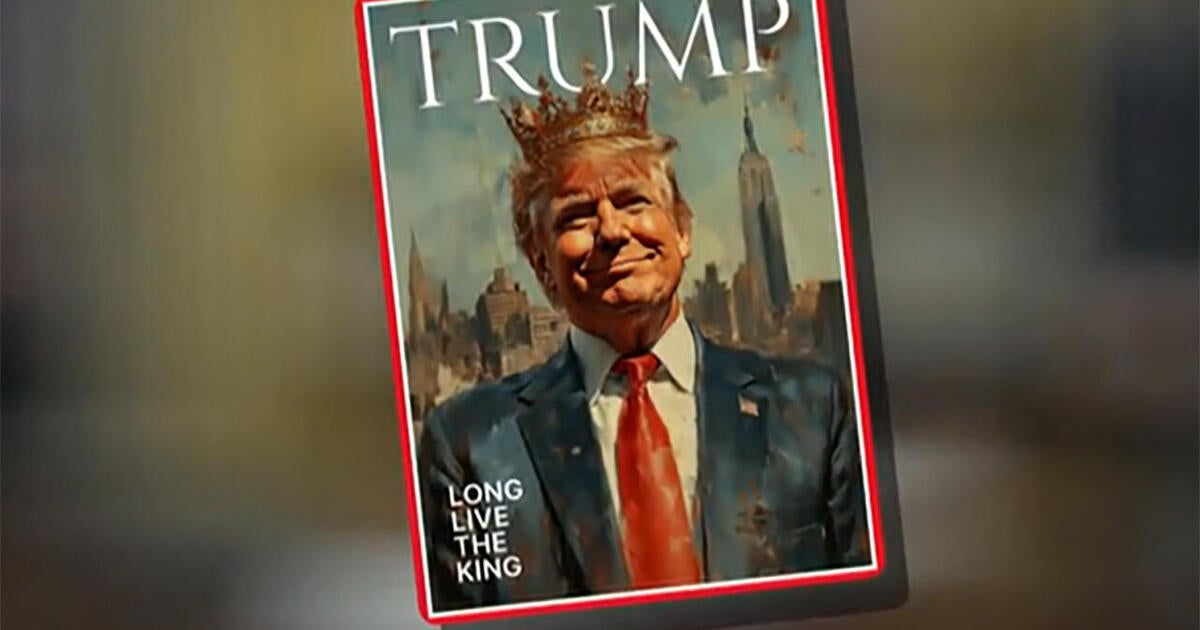The tensions brought a certain phrase to the fore of the American conversation: “Constitutional crisis.”
Now, that term is back.
CBS News
Many Democrats are sounding the alarm about President Trump’s use of executive power. Rep. Sean Casten (D-Ill.) said, “The actions that Musk and his IT goons have taken, they’re illegal.”
And some fear that Trump, who has shattered norms and who worked relentlessly to overturn the 2020 election, cannot be counted on to follow the courts.
Most Republicans are shrugging off talk of a “crisis.” Speaker Mike Johnson said, “I’ve been asked so many times, ‘Aren’t you uncomfortable with this?’ No, I’m not.”
In fact, many are cheering as Trump overhauls the Justice Department and FBI; works with Elon Musk to fire thousands of federal employees; and signs piles of executive orders. Making sense of this moment is tricky, but looking to history can be a good place to start.
Asked What is a constitutional crisis?, Jeffrey Rosen, who runs the non-partisan National Constitution Center in Philadelphia, replied, “A constitutional crisis is if a president refuses to carry out an authoritative opinion of the Supreme Court. It’s never happened before in American history. Andrew Jackson threatened to ignore the court, but he didn’t. And no president has ever defied the court. So far, President Trump hasn’t, either.”
“The Supreme Court has never been defied?” I asked.
“You haven’t had an authoritative order that a president’s refused to carry out,” Rosen said.
These days, Trump’s attorneys are busy appealing lower-court decisions that have tried to rein him in. Those cases could soon reach the Supreme Court.
Gillian Metzger, a constitutional law professor at New York’s Columbia University, who worked at the Justice Department in the Biden administration and clerked for Justice Ruth Bader Ginsberg, thinks Trump is deliberately testing the bounds of executive power.
I asked, “Where are the guardrails around President Trump and his use of power?”
“There are some guardrails; there’s the courts,” Metzger replied. “So far, the courts are holding. This is early days. I mean, we’ve had a whole lot of legal action.”
“It’s hard to keep track of everything.”
“It’s very hard to keep track of everything!” Metzger said. “But we’ve had a lot of interventions early on by courts. There’s only so much the courts ultimately can do. If you really have an administration that is intent on violating the law, it’s gonna take not just the courts, it’s gonna take Congress, it’s gonna take the states, it’s gonna take the people standing up and making it clear they’re not gonna stand for that, for our constitutional order to be preserved.”
For the time being, the Republican-controlled Congress is doing little, if anything, to contest Trump. Democrats have expressed outrage; most Republicans range from muted, to thrilled.
Trump has also unsettled his critics by leaning into the idea that he has immense power, even posting a fake magazine cover where he donned a crown, with the caption, “Long Live the King.” On social media, he has quoted this line from a film about the French emperor Napoleon: “He who saves a nation violates no law.”
CBS News
I asked Metzger, “What does it say to you when a president puts that out there?”
“Truthfully, I really don’t know what to make of some of the stuff on social media from Trump or from Musk or from others,” she replied. “It seems to be aiming for some kind of shock value.”
Don McGahn, who was White House counsel in Trump’s first term, says he sees a president who is generating headlines, not a crisis.
I asked, “Do you believe he’s testing the bounds of executive power, or not?”
“I think you can make that argument,” said McGahn. “He certainly is doing it in a way that is very open, very transparent, very in-your-face. Doesn’t seem to be a lotta secret memos telling people what to do. It seems that he is certainly doing it wide open in a way that lets people see. I think he certainly is pushing the envelope, and I think he’s doing it in a way where I think he has much more solid legal authority to do so than I think a lotta people realize.”
“What’s your message to Americans who are feeling whiplash with everything that’s happened?”
“Calm down; that’s my message. Calm down,” McGahn said. “It’s a process, it’s a lot of paper, it’s a lot of executive orders, it’s a lot of hype. There’s a process in place. People are gonna go to court. Courts will sort it out. Congress can help sort it out. We’ll see what comes out at the end. But this is how our system works.”
This crossroads on presidential power has been years in the making, with conservatives long calling for an empowered executive.
“You do have courts now, which have a very heavy Trump stamp on them,” said McGahn, who was a key attorney behind Trump’s nominations to the high court, which last year ruled presidents have broad immunity.
I asked, “What is the significance of the presidential Immunity ruling when it comes to President Trump today?”
McGahn said, “Well, I think it reflects what really had already been the law. Now, there’s some scholars and law professors and things that disagree with that, but I think really the president gets to be president. And when he makes decisions within his constitutional or statutory authority, that’s it.”
But what if the courts tell Trump to hold up – and he doesn’t? “If the President starts ignoring court orders, that gets into some ‘odd situations,'” McGahn said. “Hasn’t done that; he says he’s not gonna do that.”
“Do you believe him?” I asked.
“I do.”
In a statement, the White House said Trump is following the Constitution “to a T.”
“The continued successes in the courts in favor of the Trump administration shouldn’t be a surprise to anyone who has ever read our great Constitution, which clearly lays out the role of the Executive Branch, and which President Trump and his entire administration are following to a T,” White House spokesman Harrison Fields told “CBS Sunday Morning.” “The resistance campaign can try, but they will continue to fail in their pursuit to rewrite the Constitution and deny the people the legal authority of the President to run the Executive Branch.”
In the end, for Jeffrey Rosen, history and the Constitution remain the guidebooks for our turbulent times, especially as this president is on the brink of making history of his own.
“President Trump is asserting a robust form of presidential power that’s as strong as any president in history,” Rosen said. “It’s called the unitary executive theory, and the basic idea is that Congress can’t constrain the president’s power. Now, the Supreme Court hasn’t weighed in on the extent of this unitary executive theory. But if the court agrees with President Trump – as it could – then he will in fact wage executive power more robust than any president in history.”
For more info:
Story produced by Jon Carras. Editor: Ed Givnish.
Donald Trump, United States Constitution
#heading #constitutional #crisis



